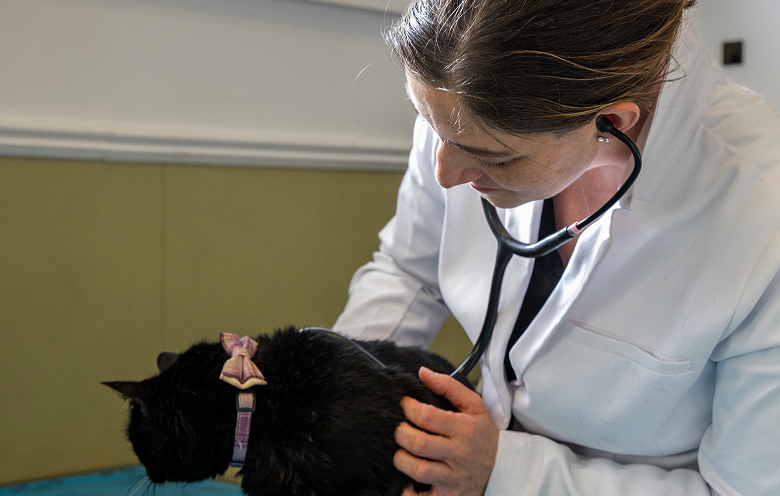General Surgeries


Surgery is a very effective option for treating a wide range of injuries and illnesses—and with advancements in veterinary medicine, it’s now safer than ever. We use the latest surgical equipment and best practices with every cat or dog surgery. Your pet’s safety is just as important to us as it is to you!
Surgeries we perform
- Spays and neuters
- Foreign body removal
- Abdominal surgeries
- Basic eye surgeries (cherry eye, enucleation, etc.)
- Bladder stone removals
- Exploratory surgeries
For more complex procedures such as orthopedics, we rely on a boarded veterinary surgeon who visits our hospital for such procedures. Common orthopedics he performs include:
- Cranial cruciate ligament (CCL) repairs such as tibial plateau leveling osteotomy (TPLO)
- Patella luxation repairs
- Fracture repairs
- Amputations
- Hip dysplasia repairs such as femoral head ostectomy (FHO)




Our safety protocols
Your pet can’t speak, and so it can be hard to know when they are starting to feel unwell. Cats and dogs are notorious at hiding signs of illness until the disease has progressed, making early detection difficult. Enter lab work. With lab work including blood analyses, urinalysis, fecal exams, and skin testing, we can more readily detect abnormalities and start your pet on a treatment plan early. This greatly improves your pet’s recovery time and limits their discomfort.
Tests we commonly run with our in-house lab include:
- Complete blood counts (CBCs)
- Blood chemistry panels such as liver enzyme screening, pancreatic evaluation, kidney profiles, glucose and electrolyte levels, and more
- Blood gases analysis
- Urinalysis to check the health of the kidneys and bladder
- Fecal testing to check for intestinal parasites and other gastrointestinal problems
- Disease screenings for FeLV and FIV in cats and heartworm, tick-borne illness, and parvovirus in dogs
Tips for a smooth recovery
When your pet is ready to be picked up from surgery, we’ll send you home with detailed, personalized instructions for their recovery based on their procedure and their individual needs. However, for any cat or dog surgery, there are a few universal tips to keep in mind to help your pet bounce back:
- Give them a quiet area to rest in like their crate or a pet-safe room for the first 24-48 hours after surgery. They’ll still be a little groggy from the anesthesia, so may not eat as much as usual and will likely sleep a lot.
- Prevent them from participating in any rambunctious activity for at least the first 10 days following surgery. No jumping, no running, no chasing the cat, etc.
- Use an e-collar to keep them from licking or scratching at their incision. If an e-collar causes more trouble, you can put them in an old onesie or a snug-fitting T-shirt instead.
- Provide them with pain medication as directed by your veterinarian to reduce their discomfort and speed up recovery.
- Watch their incision closely for signs of inflammation (redness), infection (swollen with puss leaking out) or torn sutures (this one should be obvious!). Contact us immediately if you notice any of the above!
Same & Next-Day Appointments
We offer same-day appointments, so we can get your little one feeling better ASAP!
Hours and Location
Allendale Veterinary Hospital
MON: 8am-6pm
TUES: 9am-7pm
WED: 8am-5pm
THURS: 9am-7pm
(8:00-6:00 Third Thursday of the month only)
(8:00-6:00 Third Thursday of the month only)
FRI: 8am-6pm
SAT: 8am-2pm
SUN: Closed
.svg)